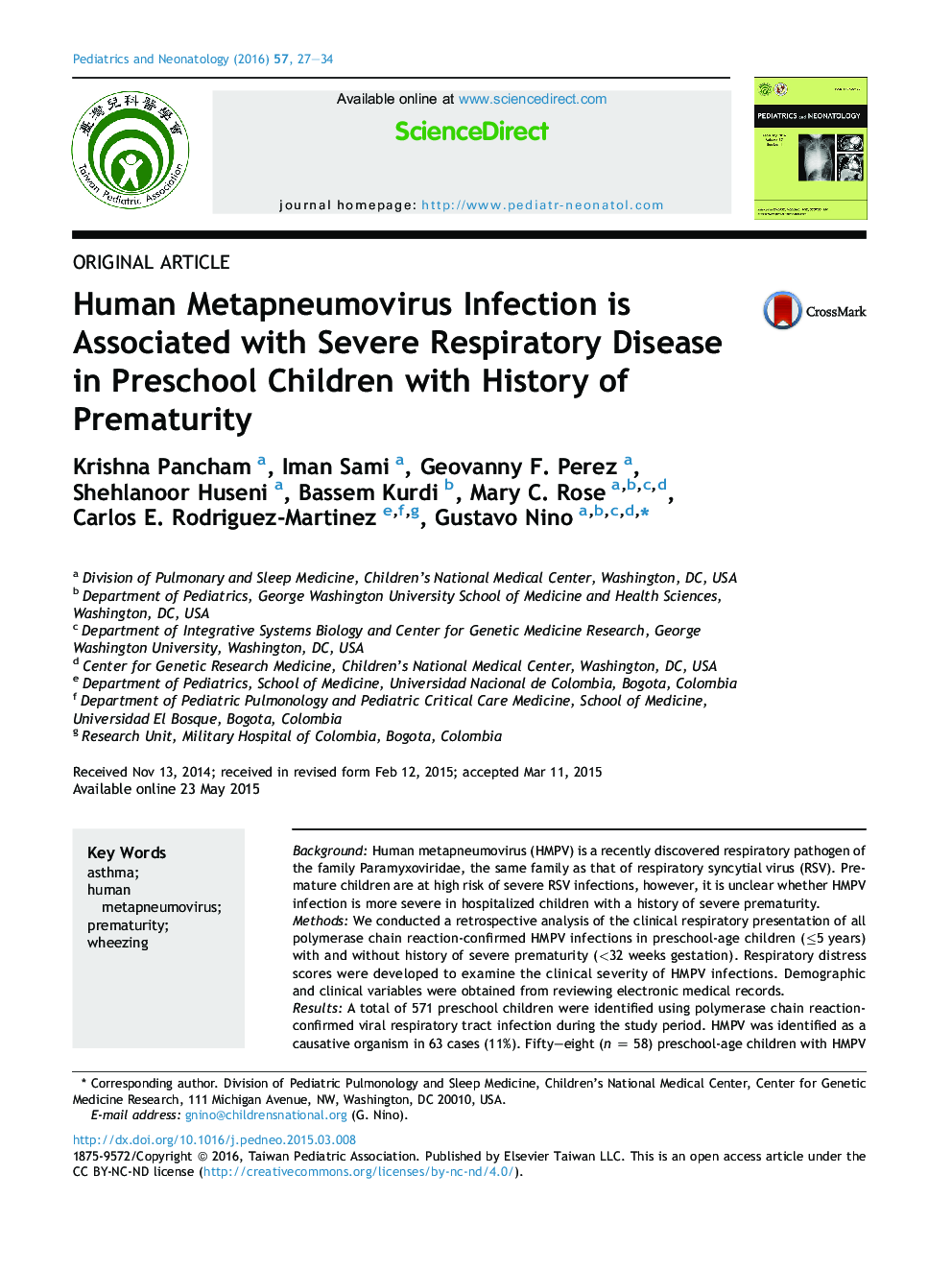| Article ID | Journal | Published Year | Pages | File Type |
|---|---|---|---|---|
| 4175087 | Pediatrics & Neonatology | 2016 | 8 Pages |
BackgroundHuman metapneumovirus (HMPV) is a recently discovered respiratory pathogen of the family Paramyxoviridae, the same family as that of respiratory syncytial virus (RSV). Premature children are at high risk of severe RSV infections, however, it is unclear whether HMPV infection is more severe in hospitalized children with a history of severe prematurity.MethodsWe conducted a retrospective analysis of the clinical respiratory presentation of all polymerase chain reaction-confirmed HMPV infections in preschool-age children (≤5 years) with and without history of severe prematurity (<32 weeks gestation). Respiratory distress scores were developed to examine the clinical severity of HMPV infections. Demographic and clinical variables were obtained from reviewing electronic medical records.ResultsA total of 571 preschool children were identified using polymerase chain reaction-confirmed viral respiratory tract infection during the study period. HMPV was identified as a causative organism in 63 cases (11%). Fifty–eight (n = 58) preschool-age children with HMPV infection were included in this study after excluding those with significant comorbidities. Our data demonstrated that 32.7% of children admitted with HMPV had a history of severe prematurity. Preschool children with a history of prematurity had more severe HMPV disease as illustrated by longer hospitalizations, new or increased need for supplemental O2, and higher severity scores independently of age, ethnicity, and history of asthma.ConclusionOur study suggests that HMPV infection causes significant disease burden among preschool children with a history of prematurity leading to severe respiratory infections and increasing health care resource utilization due to prolonged hospitalizations.
